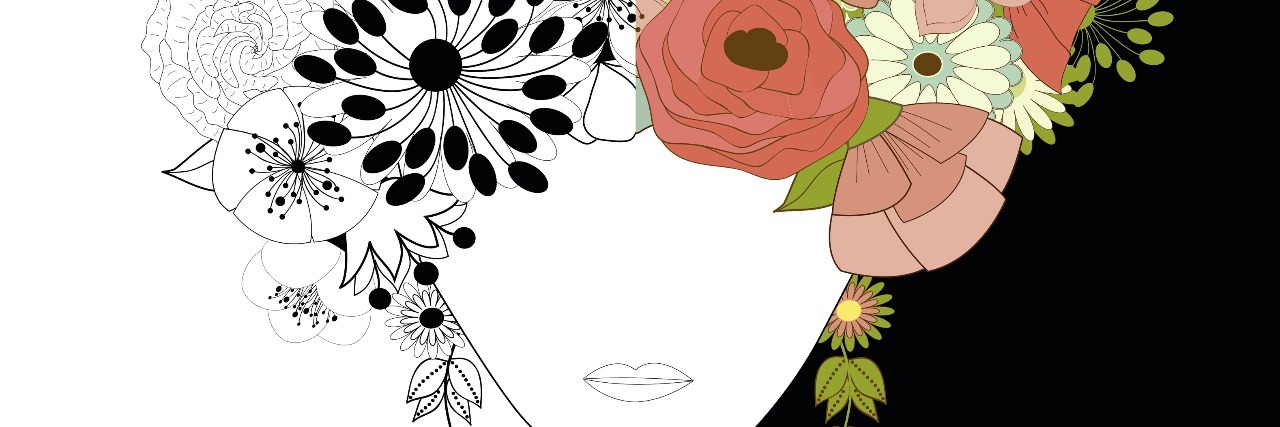I am a writer an also an avid reader. I love to gather information. It is no surprise that I would read everything related to depression since depression has colored ever facet of my life for the past 20 years. If you’d told me five years ago that I’d be writing about my own depression publicly — well, you would’t have, because my depression was very hidden. I think only my mom, my husband and my counselor knew my “dirty secret.” But, that’s another topic for another day.
I’ve chosen to write about depression for The Mighty because it helps me greatly to read others’ accounts of depression. It makes me feel less isolated and more “normal.” However, one common word I see in both self-help books and articles, memoirs and personal articles that I cannot relate to — and in fact am uncomfortable with — is “recovery.” Each story is personal and I respect other people’s experiences with depression and recovery. But, what if recovery is not part of the story? Where are these stories? Likewise, if you peruse the psychology/self-help section of your local books store for books pertaining to depression, you will see many derivatives of titles such as, “10 Steps to Overcome Depression,” or “Depression and Recovery,” or ”Depressed No More.” You get the idea.
I used to devour such titles, believing if I just followed “the steps,” then, poof! my depression would clear up like a bad cold. Looking back, I was desperate to feel better faster, and truth be told, I didn’t fully understand depression is an illness. After all, in my family mental illness is a “sweep under the rug” topic. This is probably somewhat generational, and I don’t mean it as a criticism to my family. It’s just something that wasn’t talked about. I was told depression/happiness is a choice and I couldn’t figure out how I continued choosing something I didn’t want or mean to choose. To their credit, my parents took me for psychological testing when I was 13 and having difficulty in school. After several hours of testing, I was diagnosed with major depressive disorder and generalized anxiety disorder. I was relieved. There was a name for this! I was an adolescent. This was probably just some mood thing I would grow out of. It would probably just go away once I escaped the bullying of grammar school. Then once I matured, then once I went to college, then once I graduated, then once I had a job, then once I got married, then once I had a baby…
You see where I’m going with this, but please don’t misunderstand. I am not saying recovery from depression is not possible. Some people will experience one depressive episode and never experience another. Some will go weeks, months or years between episodes. Some will notice a significant reduction in or cessation of symptoms with the implementation of medication, counseling and lifestyle modification. However, some of us won’t. My depression is chronic. I have what is known as “double depression,” meaning my depression is both chronic and episodic. Sometimes it’s background noise and sometimes it’s all consuming, but it’s never gone. And you know what? That’s OK.
Full recovery is no longer a part of my depression story. I’m not looking for a cure. I am not trying to overcome depression because it is not a lack of inner strength or a choice that causes me to remain in depression. You might think I’m being pessimistic, but to the contrary, giving up the idea of recovery and reframing how I think about depression was and continues to be a huge part of my therapy and learning to live well with depression.
Depression acceptance, not depression recovery, is my goal and my journey. Don’t confuse accepting with giving up — I’ve made that mistake. Giving up says, “I will never feel better. It will always be this bad. Why even bother?” Acceptance says, “I have depression. It’s an illness. Medical advancements continue to be made and new medications and therapies are always being implemented. In the meantime, right now, what can I do to live the best possible life with depression?”
Accepting my depression, for me, means giving myself some grace. I don’t choose to have it and I can’t choose not to have it. Again this does not mean throwing my hands up and doing nothing. I take a combination of medications, eat a high protein diet and try to do the things I can still enjoy. But also, I’m honest with myself and with others. I will never be that bubbly person with lot’s of energy. More days than not, I will have to push myself to do ordinary things. Tasks that should be easy will fall through the cracks such as sending thank you cards or birthday cards on time, making phone calls or maybe socializing. Some days will be better, lighter. I will take full advantage of these days.
Full recovery is not a part of my depression story, and I’m willing to bet there are more out there like me. Giving up on full recovery, at least for now, doesn’t equal giving up on having a good life.
Full recovery is not a part of my depression story, but that doesn’t mean it’s hopeless.
We want to hear your story. Become a Mighty contributor here.
Thinkstock photo via RodicaBruma.

